In this edition of Celebrity Travel Addicts, we speak with explorer, Emmy-nominated filmmaker, and TV host JJ Kelley from the hit Travel Channel series Lost in the Wild. In our wide-ranging interview, we chat with J.J. about traveling far off the beaten path, why working on Lost in the Wild is so meaningful for him, his passion for conservation, and much more. Check out his favorite destinations around the globe and find out where he’s off to next!
When I was a kid growing up in Minnesota, I always went for hikes that started from the backdoor. I lived in a very forested and mildly wild part of the world, and nothing made me happier than being able to navigate my way home from a new location. After 18 years of exploring, I felt like I’d seen every trail, learned all the local rivers and backwoods in-between, so I started expanding my backyard.

For me it’s everything. It’s my inspiration, my identity and my greatest source of joy. The feeling of being in a place where the ideas are different, the language is unfamiliar, the food is unexpected and the sunrises feel unique—that’s when I feel life coursing through my veins. You’re constantly creating new neurological synapses and life as you know it is always the more fresh and interesting.

I got a reputation as a National Geographic filmmaker who’d go to the world’s more rugged locations. I’ve now been to the Congo three times filming in the gold mines of warlords and on the frontline in the ivory war. I’ve worked underground in the Gaza Strip, from a tent in Antarctica, kayaked from Alaska to Seattle and worked on a crab boat in the Bering Sea.
Over the course of all this work, I’ve found the specific type of job you do eventually defines your career. If you’re the traveler who reviews the world’s most luxurious hotels (lucky you!), then chances are the next gig you take on will be another high-end experience out in the world. So for me, it’s going to the ends of the earth, and that’s what I’ve been doing for my entire career.
These areas call me for the same reason as travel calls me, to go to the edge and look on to something new. These places shape me. They remind me that the world is bigger than the scope of my periphery. I think we all get caught up in our own little universes and loose focus on what’s meaningful in life, and for me its connections with people, animals, and locations.
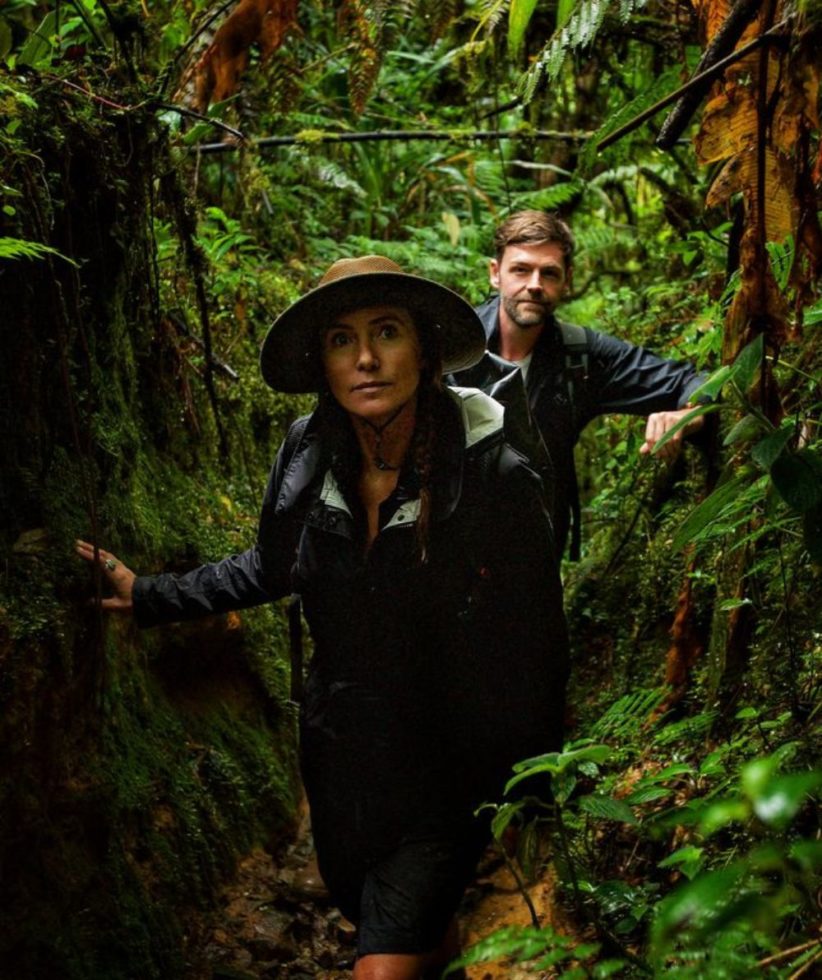
For Lost in the Wild we traveled to the most remote locations on Earth where people have gone missing. These are hikers, spiritual seekers, influencers and locals all who went vanished under very unusual circumstances. In every case foul play was likely. We worked with local investigators, interview suspects, talk with family members and press law enforcement to shed light on these dark cases, many of which have been shielded from the public eye. By following in the footsteps of those who’ve disappeared, we also found new evidence in these cases.
To produce the series, I remember traveling literally all the way around the world twice in just 2 months, and that was only to film 4 of our 8 episodes. It was a serious head-spinner. Getting into these mysterious and tragic cases was an emotional rollercoaster and legitimacy sketchy at times.

That’s why this show is so meaningful to me, because of all the crazy trips I’ve taken, the 111 countries I’ve visited and the year of my life lived in a tent, I often think, it could have been me who vanished. When I interview the mother of a son who went to India seeking an authentic experience in the Himalayas and never came home, I think this could be someone interviewing my mom. When I first thought that and learned about the many cases of those lost in wild spaces whose story just didn’t add up, it made me sad. Then it made me determined. This show is an extraordinary opportunity to set the record straight for those who want to see the world. My goal is never to keep people home living a life free of exploration; I want people to get out there, but these stories make you re-examine your limits as a world traveler.

You never destroy what makes you happy! What makes me happy is traveling the world, and I need a healthy and functioning planet to do that. The many animals, numerous plants, long migrations, the clean rivers, and fresh mountain air, we need all that that to stay alive and happy. Would you be happy if you walked out of your front door and you couldn’t breathe the air, and what if your favorite view was an apocalyptic wasteland? Nobody wants that! We can’t be short-sighted, we’re all using this planet for a short period of time. Don’t be that person who leaves an area worse than they found it, only a schmuck would do that. So I take aim at the schmucks, I want to name them and highlight their behavior with the hope of changing it and exposing to others the ignorance of such reckless actions.
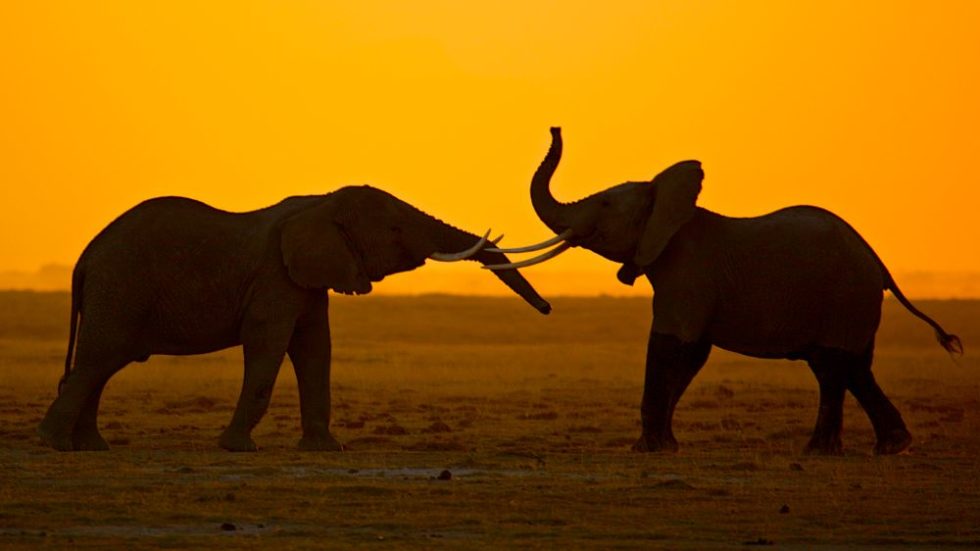
I’m on the road about 140 days a year.
I want them to appreciate the world we have and work to make it a better place in their own way. I want people to broaden their horizons and get inspired by seeing new places and people. I often document journeys to overcome the impossible, and the viewer likely will not want to do that same exact thing. However, they might do something just as extraordinary if not more so. That’s where we should be headed. I recently heard from a young man who asked for an autograph when he was in second grade. He watched a film I made where we paddled from Alaska to Seattle. He followed up 10 years later to say that that film has inspired him to follow his dreams. For me, a story like that, is the ultimate motivation for what I do.
Antarctica, The Republic of Georgia & Alaska.
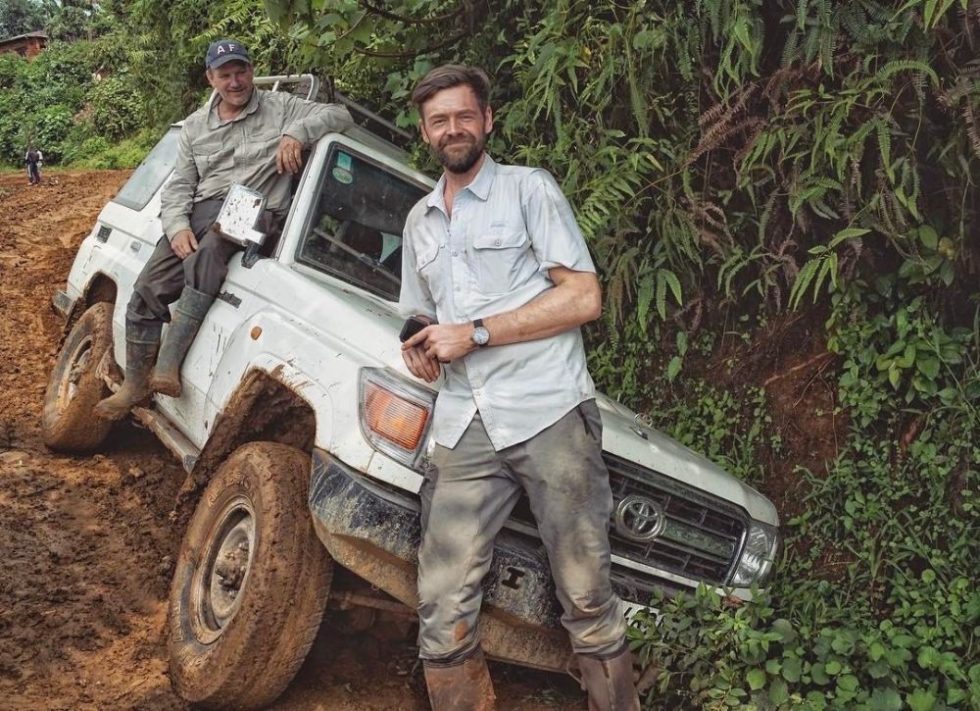
Antarctica: see a penguin!, get outside as much as you can, do a polar plunge, explore in a kayak and see the midnight sun (if visiting in the summer).
The Republic of Georgia: Wine, chacha, trek to Black Rock Lake in Lagodekhi National Park, see The Dezerter Bazaar and devour some Khinkali (outstanding Georgian dumplings).
Alaska: Have a beer at the Salty Dawg Saloon in Homer, hike Mt. Marathon in Seward, float the Kenai River fishing for king salmon, breakfast at Snow City Cafe in Anchorage and a remote kayaking trip in Kenai Fjords National Park.
111
Vietnamese, French and Peruvian

4 Charles (West Village, NYC), American Cheeseburger
Lost In Translation
Incheon International Airport (South Korea)
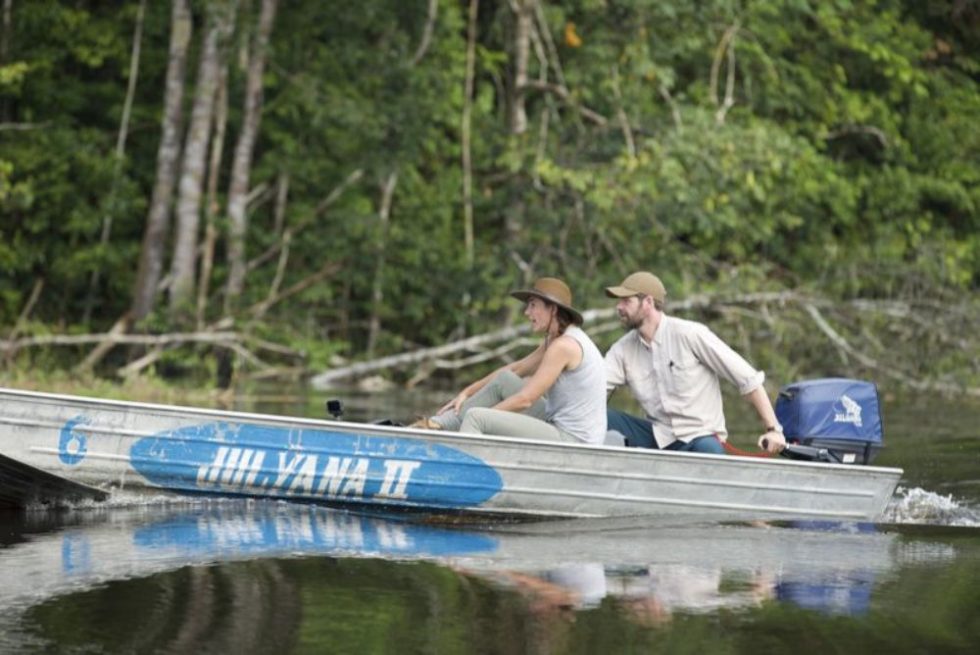
Oslo, Norway
Kate Kelley!
Podcasts!
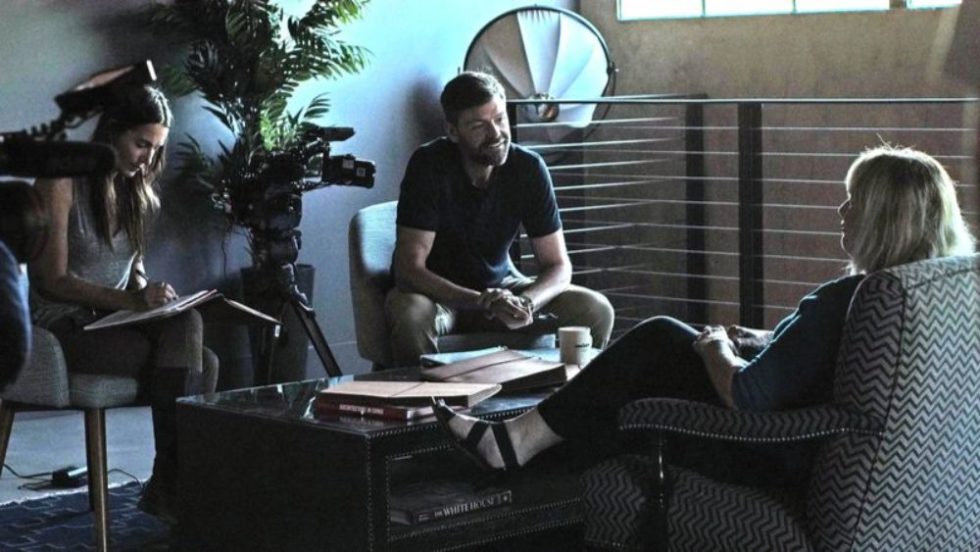
Interior Antarctica
Don’t let your excuses keep you from changing your life. Save up for it, go alone if that’s the best option and for goodness sake don’t eat dinner at the hotel—get out there!
Headphones, Worldwide All in One power adapter with USB plugs, all your shots and medications, and good walking shoes.

The Tibetan Plateau
“When one person, for whatever reason, has the opportunity to lead an extraordinary life, they have no right to keep it to themself.” – Jacques Cousteau
The Kamchatka Peninsula

J.J. Kelley is an Emmy-nominated filmmaker and explorer focusing wild places around the planet. He’s the host of a new 8-part Travel Channel series, “Lost In The Wild,” which investigates some of history’s greatest adventures gone wrong. Three of Kelley’s documentaries have been featured on the cover of National Geographic magazine, including the Emmy-nominated “Warlords of Ivory,” and he is a producer and correspondent for National Geographic Channel’s flagship documentary series, “EXPLORER.”
Learn more about JJ Kelley by checking out his website. You can also connect with him on his Instagram, Twitter, and Facebook.
Don’t forget to tune in to see JJ in new episodes of Lost in the Wild on Sunday nights at 11 p.m. Eastern/10 p.m. Central on the Travel Channel!
Check out our interview with JJ’s Lost in the Wild co-host Kinga Philipps here!
Counter
101 Countries • 1432 Cities